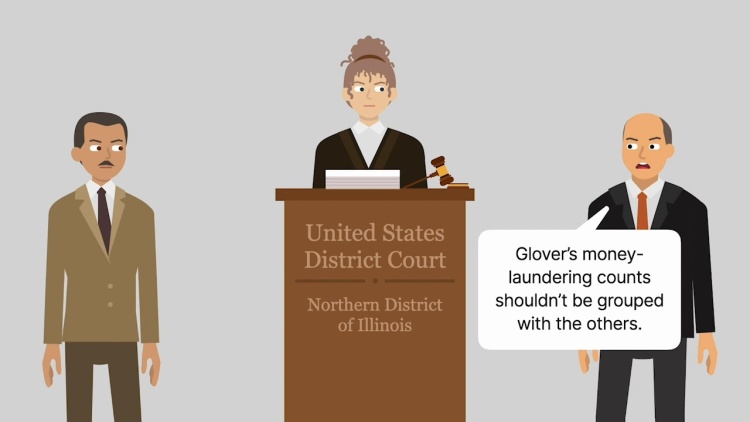Glover v. United States
United States Supreme Court
531 U.S. 198 (2001)

- Written by Alex Ruskell, JD
Facts
Paul Glover (defendant) was convicted of using a union’s investments to enrich himself. The presentence report recommended that Glover’s convictions for labor racketeering, money laundering, and tax evasion be grouped together. The district court ruled that the money laundering should not be grouped with the other offenses. Glover’s attorneys did not submit anything regarding the court’s decision, which increased Glover’s sentencing range. Glover was sentenced to 84 months. On appeal to the United States Court of Appeals for the Seventh Circuit, Glover’s attorneys did not raise the grouping issue, and his sentence was affirmed. Glover filed a pro se motion arguing that his attorneys’ failure to address the grouping issue resulted in ineffective assistance of counsel because his sentence was increased by between six and 21 months. Both the district court and the Seventh Circuit Court of Appeals denied Glover’s motion, finding that the mere difference in the length of his sentence was insufficient to establish prejudice. Glover appealed to the United States Supreme Court, which granted cert.
Rule of Law
Issue
Holding and Reasoning (Kennedy, J.)
What to do next…
Here's why 907,000 law students have relied on our case briefs:
- Written by law professors and practitioners, not other law students. 47,100 briefs, keyed to 996 casebooks. Top-notch customer support.
- The right amount of information, includes the facts, issues, rule of law, holding and reasoning, and any concurrences and dissents.
- Access in your classes, works on your mobile and tablet. Massive library of related video lessons and high quality multiple-choice questions.
- Easy to use, uniform format for every case brief. Written in plain English, not in legalese. Our briefs summarize and simplify; they don’t just repeat the court’s language.





